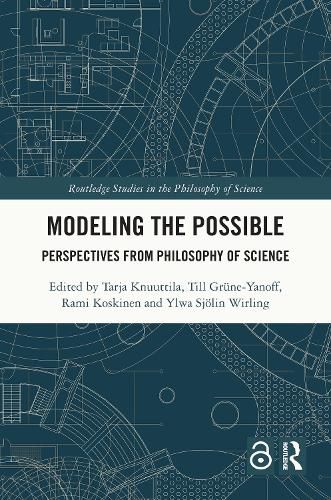Readings Newsletter
Become a Readings Member to make your shopping experience even easier.
Sign in or sign up for free!
You’re not far away from qualifying for FREE standard shipping within Australia
You’ve qualified for FREE standard shipping within Australia
The cart is loading…






Models are used to explore possibilities across all scientific fields. Climate models simulate the potential future climatic conditions under various emissions scenarios, macroeconomic models investigate the implications of various fiscal and monetary policy initiatives, and infectious diseases models study the spread of viral diseases under a range of conditions. Such modeling approaches have not gone ignored by philosophers of science, but they have only recently started to explicitly address modeling the possible. So far, the discussion has been spread across a variety of more or less isolated pockets of debate in the philosophy of science. Modeling the Possible: Perspectives from Philosophy of Science draws together these studies, focusing specifically on how various modeling practices probe possibilities and justify claims concerning them.
The volume is divided into three sections, plus an introductory chapter. The introductory chapter provides a state-of-the-art survey of the discussions of modeling possibilities within the philosophy of science, as well as an introduction to the book's main themes and individual papers. The three sections focus on different kinds of possibility concepts, possibility spaces, and how-possibly modeling in practical situations. The chapters contained in this volume address conceptual and theoretical issues while also presenting case studies from various scientific domains: physics, evolutionary and synthetic biology, network science, climate science, economics, and epidemiology.
Essential reading for philosophers of science, epistemologists, and modelers in various scientific disciplines, Modeling the Possible is also suitable for anyone interested in model-based scientific inferences, their validity, and the policy conclusions derived from them.
$9.00 standard shipping within Australia
FREE standard shipping within Australia for orders over $100.00
Express & International shipping calculated at checkout
Models are used to explore possibilities across all scientific fields. Climate models simulate the potential future climatic conditions under various emissions scenarios, macroeconomic models investigate the implications of various fiscal and monetary policy initiatives, and infectious diseases models study the spread of viral diseases under a range of conditions. Such modeling approaches have not gone ignored by philosophers of science, but they have only recently started to explicitly address modeling the possible. So far, the discussion has been spread across a variety of more or less isolated pockets of debate in the philosophy of science. Modeling the Possible: Perspectives from Philosophy of Science draws together these studies, focusing specifically on how various modeling practices probe possibilities and justify claims concerning them.
The volume is divided into three sections, plus an introductory chapter. The introductory chapter provides a state-of-the-art survey of the discussions of modeling possibilities within the philosophy of science, as well as an introduction to the book's main themes and individual papers. The three sections focus on different kinds of possibility concepts, possibility spaces, and how-possibly modeling in practical situations. The chapters contained in this volume address conceptual and theoretical issues while also presenting case studies from various scientific domains: physics, evolutionary and synthetic biology, network science, climate science, economics, and epidemiology.
Essential reading for philosophers of science, epistemologists, and modelers in various scientific disciplines, Modeling the Possible is also suitable for anyone interested in model-based scientific inferences, their validity, and the policy conclusions derived from them.